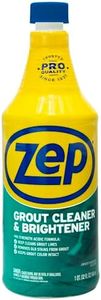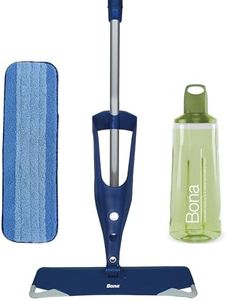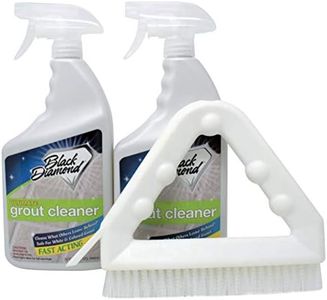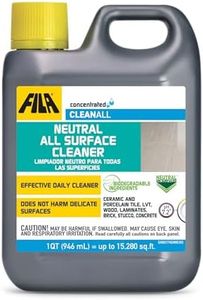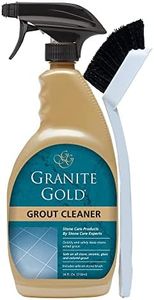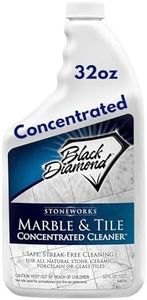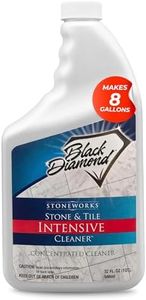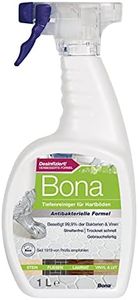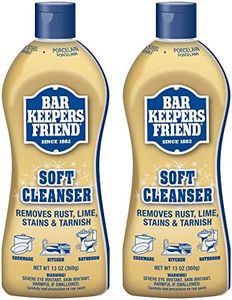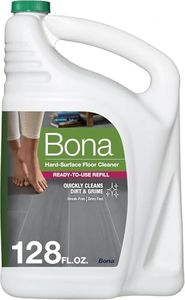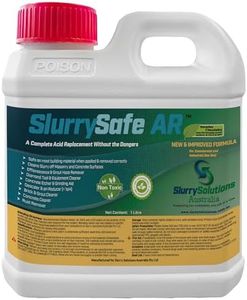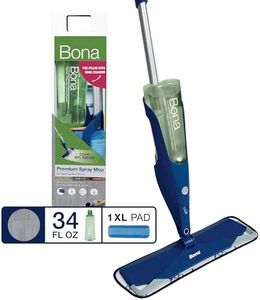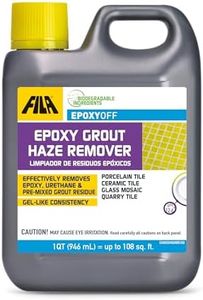We Use CookiesWe use cookies to enhance the security, performance,
functionality and for analytical and promotional activities. By continuing to browse this site you
are agreeing to our privacy policy
10 Best Porcelain Tile Cleaners
From leading brands and best sellers available on the web.By clicking on a link to a third party's website, log data is shared with that third party.
Buying Guide for the Best Porcelain Tile Cleaners
Choosing the right porcelain tile cleaner can make maintaining your floors or walls much easier and can help your tiles look their best for a long time. While all porcelain cleaners are designed to remove dirt and grime, they’re not all the same: some are better for everyday cleaning, others tackle tough stains, and some are suitable for special finishes such as polished or matte tiles. The right cleaner for you depends on your tile’s finish, the type of dirt you typically deal with, and whether you prefer ready-to-use products or concentrates you dilute with water. Understanding the key features will help you pick a cleaner that’s effective, safe for your tiles, and works best for your busy life.Type of Cleaner (Ready-to-Use vs. Concentrate)Porcelain tile cleaners are often available as ready-to-use sprays or as concentrated liquids that need to be diluted with water before use. Ready-to-use cleaners offer convenience—just spray and wipe—making them great for quick everyday cleaning or for people who don’t want to measure or mix. Concentrates usually come in larger bottles and can be more economical, as you mix only what you need, but they require an extra step of preparation. If you clean frequently or have lots of tile area, a concentrate may last longer and can be more cost-effective, but if you want simplicity and minimal fuss, a ready-to-use spray is best.
pH LevelThe pH level of a cleaner describes how acidic or alkaline it is, which affects how it interacts with dirt, stains, and your tiles. Neutral pH (around 7) cleaners are gentle, safe for both glazed and unglazed porcelain, and typically won’t damage your tiles or grout, making them ideal for regular, everyday cleaning. Acidic cleaners, with a lower pH, are stronger and can tackle tough mineral stains (like limescale), but may dull polished tiles or harm grout if overused. Alkaline cleaners, a bit higher in pH, help with greasy messes but can also be harsh on some finishes. For regular maintenance, opt for a neutral pH; choose acidic or alkaline products only for specific stain problems and use them with care.
Safe for Tile FinishPorcelain tiles come in different finishes, such as polished, matte, or textured. Not all cleaners are suited for every finish; some harsh formulas can dull the shine on polished tiles or leave residues on textured surfaces. Check that the product is labeled as safe for your specific tile finish. If you have shiny, polished porcelain, you’ll want a non-abrasive, residue-free formula to keep surfaces glossy. For matte or textured tiles, a cleaner that removes embedded dirt without leaving a film is best. Always match the cleaner to your tile finish to maintain the look and longevity of your tiles.
Residue-Free FormulaResidue-free cleaners rinse off easily and won’t leave behind a sticky or cloudy film that can attract dirt and make tiles look dull. This is especially important in areas with lots of light or where tiles are walked on barefoot. If you want your tiles to stay bright and not become dull over time, a residue-free cleaner is ideal. Some cleaners add a bit of shine or conditioning, so if residue bothers you or you want a clean, streak-free look, look for products labeled as ‘no-rinse’ or ‘residue-free’.
Disinfecting PropertiesSome porcelain tile cleaners have disinfecting properties to kill germs and bacteria, making them useful for bathrooms, kitchens, or homes with pets and small children. Disinfecting cleaners are great when hygiene is a high priority, but they may use stronger chemicals and can produce lingering odors. If you mainly want to keep surfaces visually clean, a standard cleaner is enough; but if you want to sanitize as well, check for cleaners marked as disinfecting or antibacterial. Pay attention to directions, as some disinfecting cleaners require a longer contact time on surfaces.
ScentCleaner scent can make the cleaning process more pleasant or, if too strong, uncomfortable. Options range from fresh or citrus to unscented formulas for sensitive users. If you’re sensitive to smells or use the cleaner in enclosed spaces, choose a mild or fragrance-free product. If you enjoy a fresh scent after cleaning, many brands offer pleasant-smelling options. The best choice here is entirely personal and depends on your scent preference and household needs.
